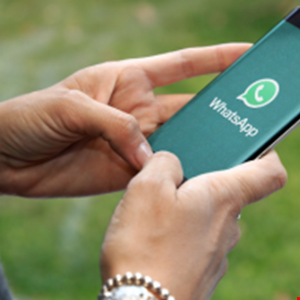- The camera I recommend to most new photographers is not a Nikon or Sony
- I tested LG's new ultrathin 2-in-1, and it handles creative workloads like a dream
- The best Mini ITX PC cases of 2025: Expert recommended
- From Copilot to agent - AI is growing up, and CISOs need to be ready
- My favorite Apple Watch for tracking my workouts is 32% off at major retailers
WhatsApp Files on Dark Web Show Millions of Records For Sale

In mid-November, a threat actor posting on a dark web forum claimed to have stolen the personal information of almost 500 million WhatsApp users.
Now, Check Point Research (CPR) has published a new advisory analyzing the exposed files and confirming the leak includes 360 million phone numbers from 108 countries.
While CPR was unable to confirm the leaked numbers belonged to WhatsApp users, their analysis showed that the phone numbers varied in quantity among countries, ranging from 604 in Bosnia and Herzegovina to 35 million attributed to Italy.
According to the document, the whole list went on sale for four days and is now being distributed for free among dark web users.
“While the information on sale does not expose the content of any messages themselves, it is still worrying to see such a large volume of phone numbers for sale on the Dark Web. There is the potential that this information could be used as part of tailored phishing attacks in the future,” said Deryck Mitchelson, field CISO of EMEA at CPR.
At the same time, Karol Paciorek, a security researcher from the computer security incident response team of the Polish financial sector (CSIRT KNF), claimed on Twitter on Tuesday that the leaked database is a re-use of an older 2019 Facebook breach.
“The WhatsApp ‘leak’ is nothing more than phone numbers obtained from the Facebook ‘leak’ that took place in 2019,” Paciorek claimed. “The sample of 5000 WhatsApp data records from Poland is identical to those we already saw in 2019.”
Another security expert, Alon Gal from Hudson Rock, dismissed the claims entirely, saying the WhatsApp breach ‘rumors’ are false.
“[The threat actors] basically scraped all numbers to see if there is a WhatsApp account for them or not. No real risk here,” Gal wrote in a recent LinkedIn post.
As security experts continue to analyze the leaked data, Mitchelson called for WhatsApp users to take steps to increase their security posture.
“We urge all WhatsApp users to be extra vigilant about messages they receive and practice extreme caution when it comes to clicking on any links and messages shared on the app,” the executive concluded.
Additional steps to defend against phishing, vishing and smishing attacks deriving from potentially compromised phone numbers are available in the CPR advisory.
Its publication comes two months after Meta sued three Chinese developers for allegedly tricking users into downloading fake versions of WhatsApp that harvested their login details.

